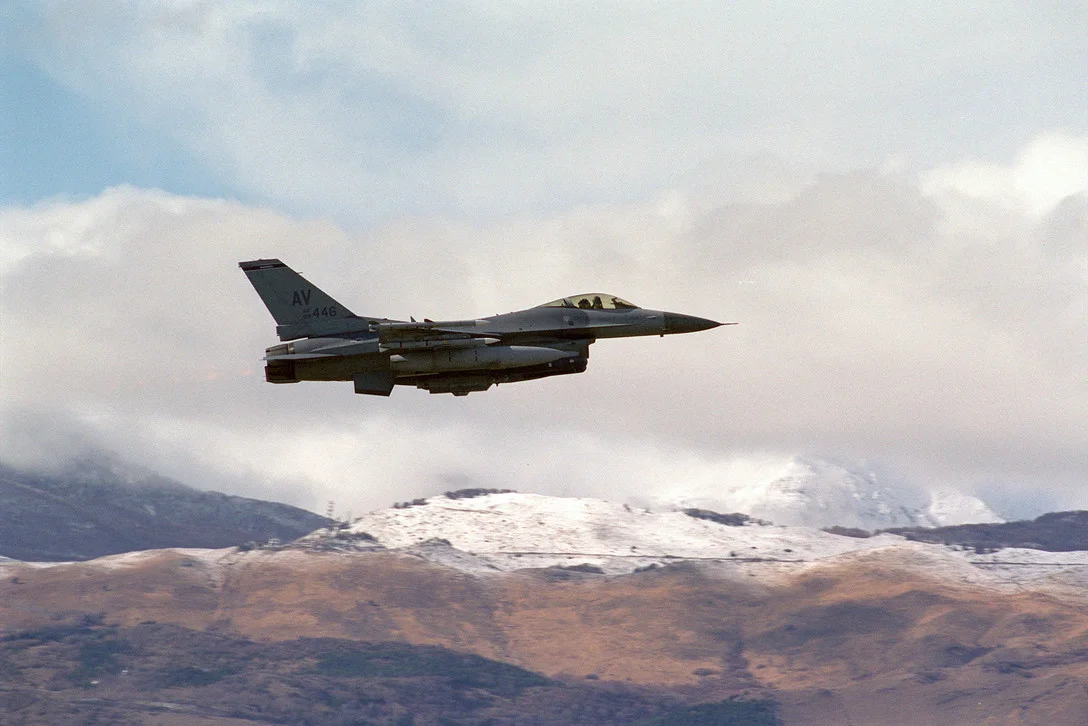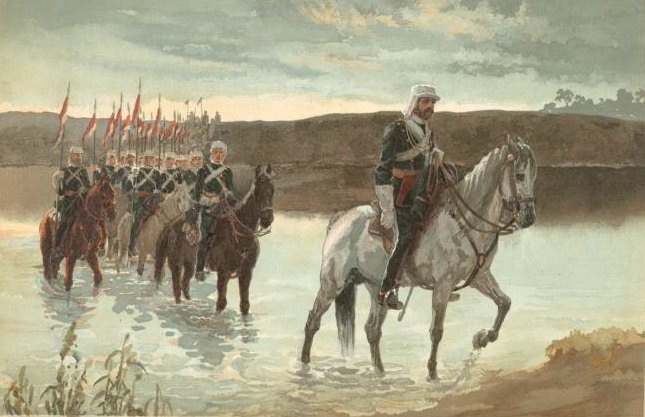The political turmoil in Venezuela has captured the attention of the United States for several months, and the recent introduction of Russian troops into the country has solidified a place for the ailing petrostate on front pages nationwide. As American eyes are drawn to the ongoing unrest in the streets of Caracas, it is worth noting this is not the first time the United States has been concerned by European intervention in Venezuela.
Ukraine: The Epicenter of Hybrid Warfare and Why the West Must Win There
The opportunities to reshape the Kremlin’s strategic calculations are clear and readily available in Ukraine. As the rise of democracy in Eastern Europe spelled the end of the Soviet Union, updating former National Security Advisor Brzezinski’s prescient comment for today’s struggle reveals the same opportunity—the survival of an independent and democratic Ukraine means defeat for Russia’s revanchist empire, and that will always be in the interest of the United States and its democratic allies.
#Reviewing Political Realism in Apocalyptic Times
Alison McQueen’s Political Realism in Apocalyptic Times offers a refreshing approach to religion in political theory. The book builds on the work of political scientists and political theorists over the past two decades to insert religion into international relations studies. Rather than dismissing apocalyptic language or confining it to political idealism, McQueen finds apocalyptic language in texts of political theory normally associated with political realism, leading her to consider these (purportedly realist) political theorists’ works as responses to apocalypticism.
What U.S. Policy for North Korea Fails to Understand
The chance of conflict in the Korean peninsula should be weighed against the direct threat being posed to the U.S. The risk of nuclear war in Seoul should not be exchanged for the risk of nuclear war in San Francisco. Washington should not deceive itself that risk and tragedy can be forever postponed. The U.S. should prepare for the unthinkable to prevent it from becoming the inevitable.
Hybrid Threats and the Constabularization of Strategy
The primary project is not defeating combatants—instead, the project is the community itself. What better way to ensure the community remains central to strategies of securing them than to find mechanisms to directly adopt precepts of community policing when countering hybrid threats—to constabularize America’s approach to security.
#Reviewing Terrorism, Betrayal & Resilience
Reconsidering NATO and U.S. Foreign Policy
NATO has enabled and supported U.S. foreign policy since the early days of the Cold War and continues to do so today. Given the 2018 National Defense Strategy’s emphasis on the return of great power competition, NATO’s importance to the United States will grow as competition intensifies. The United States should consider reinforcing NATO and reassuring its NATO allies of continued American commitment.
Positive Objectives, Maximum Leverage: Allied Force and Air Power Strategy
Most wars are limited wars, with significant political restraints on military force. Such restraints create conundrums for military strategists. “The less intense the motives,” wrote Carl von Clausewitz, “the less will the military element’s natural tendency to violence coincide with political directives.” Yet, as Allied Force illustrates, the savvy strategist can maximize the effectiveness of the air weapon even when political will is weaker.
#Reviewing Future War
Civilian and military leaders have sought the ability to anticipate the nature of future conflicts and prepare for them for millennia. Robert H. Latiff gives us his vision of future war in his recent book Future War: Preparing for the New Global Battlefield. In a concise volume, he presents his assessment of where the U.S. military is now, the challenges ahead, and the way forward.
#Reviewing The Hundred-Year Marathon: Running on Flimsy Historical Grounds
The premise of Michael Pillsbury’s controversial book is alarming yet straightforward. Western strategic thinkers have been the victims of a massive deception campaign perpetrated by a group of Chinese hardliners who have convinced the West that China’s intentions are benign, but who are, in fact, driven by one overriding goal, to overthrow the U.S. as the world’s sole superpower. If this conjures up images of a thriller from the pen of Dan Brown, it may be the intent of the author.
Military Politics in an Age of Transition: #Reviewing A British Profession of Arms
Why, one might ask, is the late Victorian British army of any relevance to the U.S. military in 2019? Simply put, many of the ideas and themes discussed by Beckett are of timeless interest to those concerned with the ways in which professions ought to, and actually do, function. In fact, there are a striking number of analogies between the British Empire during the late Victorian and Edwardian period and the current geopolitical situation of the United States.
#Reviewing Four Guardians
Scholars of civil-military relations sometimes have a bad habit of grounding their debates in the theories of the past instead of revising those theories or developing more appropriate frameworks that could inform our understanding of the recent past and prepare us for the future. In his recent book, Four Guardians: A Principled Agent View of American Civil-Military Relations, however, Jeff Donnithorne attempts to buck that trend.
#Reviewing The Generals’ War
#Reviewing A New Conception of War
Marine Major Ian Brown, who like all Marine officers of the past three decades heard stories of John Boyd and the reforms he sparked while at The Basic School, undoubtedly from instructors with little more than a cursory familiarity with the subject matter. Boyd’s contributions piqued Brown’s interest and encouraged him to dig deeper into the story.
Introducing #Scharnhorst: The Vision of an Enlightened Soldier “On Experience and Theory”
Without Gerhard von Scharnhorst, it is unlikely there would be a Carl von Clausewitz. An officer with extraordinary talents and intellect, and an even more remarkable fate, Scharnhorst forever changed the path of the Prussian Army, molded the idea of the Prusso-German General Staff, and forged some of the most influential concepts in the realm of military theory and practice. Yet, he is primarily known as a teacher and mentor to the West’s most influential strategic thinker, Carl von Clausewitz...especially among those less versed in German language and history. With this series, The Strategy Bridge strives to fill this gap.
#Reviewing The Soldier from Independence
Giangreco’s study fills a vacuum in the literature on Truman. There are many biographies of him, but they deal only briefly with his life before the end of World War I. Giangreco provides thorough coverage of Truman’s career in the military, both as a citizen soldier and then later after the U.S. government federalized his National Guard unit.
Accountability in the U.S. Navy: “So That Others May Learn”
Fifty years ago, Vermont Royster wrote that “it may seem cruel, this tradition of asking good and well-intentioned men to account for their deeds.” This accounting should not stop with the commanders at sea, but should also go to actions ashore, including how incidents like this are handled, and learned from.
Science Fiction Short Stories and the Strategist
Russian Identity: The Risks of a New Russian Nationalism
The collapse of the Soviet Union has created an ideological and identity crisis in Russia. Prior to the collapse, the U.S.S.R was a multinational, multicultural state with the ideological mission to be the vanguard of a worldwide Communist revolution. Afterwards, Russians foundered to find out who they were, what ideology they should embrace, and where they fit globally. Initial attempts at liberalization seemed to have been a spectacular failure, and attempts to define themselves have bred a new form of nationalism that is not necessarily compatible with Western ideals.
Is It Time to Abandon the Term Information Operations?
Operations in the information environment will be a critical part of future joint force operations and should be baked in to those operations as a fully valued tool in commanders’ combined arms toolboxes. Reaching that goal will require greater acceptance and understanding of information across the joint force, new structures for information forces, and the evolution of how operations in the information environment are handled within the staff.





















